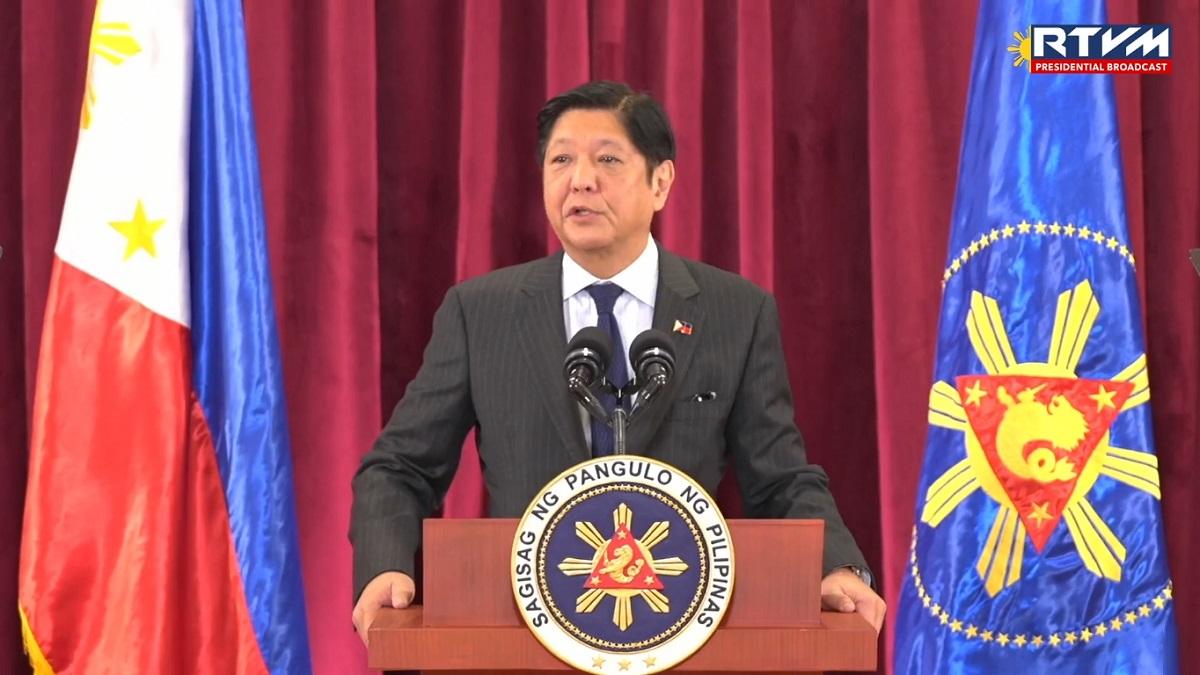Marcos on RCEP push: Time will prove it is our advantage

TOKYO — President Ferdinand “Bongbong” Marcos Jr. stood firm on his push for the ratification of the Philippines' participation in the Regional Comprehensive Economic Partnership (RCEP), despite concerns about the regional mega free trade deal's effect on the local agriculture sector.
In an interview with reporters on the flight back to Manila on Sunday, Marcos clarified that he is not lobbying for the Senate ratification of the RCEP.
“I’m not lobbying it. I’m waiting for it to be [ratified]… It’s necessary. If you think about it, we are the only ones left na hindi pa napag-ano [ratify] ng RCEP,” the President said.
He said the Philippines, by not ratifying the RCEP, is “leaving ourselves out there, isolating ourselves from the free trade zone that ASEAN [Association of Southeast Asian Nations] is.”
“So sayang naman ‘yung opportunity. That’s why I think RCEP will be a good thing. I think time will prove, yeah, time will prove that it is a, it is to our advantage,” the President said.
First floated in August 2012, the RCEP involves the 10-member Association of Southeast Asian Nations (ASEAN), along with China, Japan, South Korea, Australia, and New Zealand.
It was approved by the previous administration in September last year and brought to the Senate for concurrence.
Recently, the Presidential Communications Office (PCO) released a statement that Marcos was pushing for the free trade agreement's ratification.
But, before he took office, Marcos expressed reservations about the RCEP, saying he wanted to look at how it would impact the country’s agriculture sector.
On the concerns that the RCEP may affect the country’s agriculture sector, the President said, “I don’t see the logic in that.”
“Actually it will be the contrary because it… If we—right now kung wala tayo sa RCEP, hindi tayo, hindi natin ma-access ang kanilang mga markets. Iyong mga —lalo na ‘yung mga supply chain na available na ibinigay ngayon sa ASEAN,” he said.
“Now, if we—and for some reason mayroong mga nagkakalat na it will—hindi natin maproteksyunan ang ating sarili… para sa akin [it] is to the advantage of the Philippines dahil ‘yung mga suplay nga, the supply chains, the different non-traditional suppliers of agricultural inputs, of agricultural commodities ay mayroon—puwede nating ma-access ‘yun. Without RCEP, we cannot do that,” he added.
The Department of Trade and Industry has since clarified that highly sensitive agricultural products for the Philippines are excluded from the country’s Schedule of Commitments, which means that these products are still protected by tariffs.
Some of these agricultural products include swine meat, poultry meat, potatoes, onions, garlic, cabbages, sugar, carrots, and rice.
“Having RCEP will allow us to further strengthen our agricultural value chain so we are more competitive. That’s the general principle behind the RCEP,” Marcos said.
“It opens more trade, more trade. And lagi kong sinasabi ‘di ba walang yumaman na bansa kung hindi dahil sa trade at kailangan we have to involve ourselves in that,” he said.
The DTI expects the RCEP to generate a 10.47% increase in the country’s exports and a 2.02% increase in real gross domestic product.
The RCEP represents 50% of the global manufacturing output; 50% of the global automotive output; 70% of electronics; 26% of the global value chain (GVC) trade volume; 60% GVC for electrical/machinery, petroleum/chemicals, textiles/apparel, metal, and transport equipment, 35% of the contribution to global exports of electronics and machineries; and the main GVC hubs of big economies such as South Korea, Japan, and China
“The reason that I talked about RCEP is because I am quite confident na malapit na mapasa ‘yan,” Marcos said.
Senate President Juan Miguel Zubiri said he expects the chamber to ratify the trade accord within this month, despite the reservations of his colleagues, including the President’s sister, Senator Imee Marcos. — BM, GMA Integrated News




